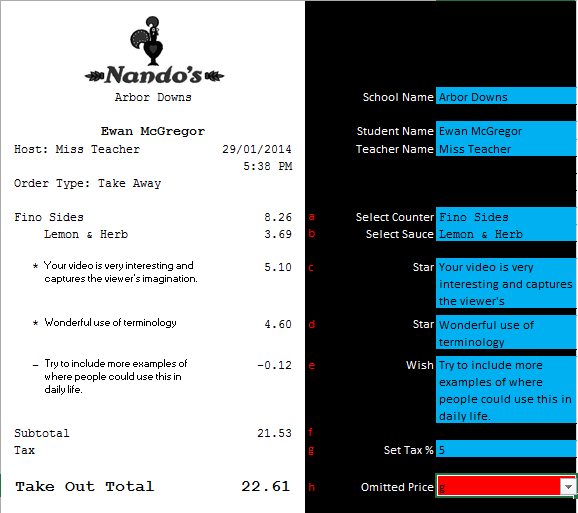Inspired by @headguruteacher
blog on the
importance of homework, I set about creating a bank of creative ideas for maths homeworks. I've had great success in the past getting students to create mini-videos and writing postcards to relatives - they really take
ownership of their work and I was incredibly impressed with the final product. It even ticks the
literacy box too.
 |
| Extract from @headguruteacher blog. |
@
headguruteacher gave some great new ideas, which I've taken, adapted and added to, to make it suitable for a maths class.
As with all more
open homework tasks, it is of paramount importance to discuss what would make a "good" standard and what would make an "excellent" standard, to ensure that pupils know what it expected of them.
For each homework, I intend to decide which of the tasks would be applicable, and present these to the class. Three students will be chosen at random to select which activity they would like to do, and the rest of the class can then select from these
3. I hope by using this strategy students will be able to take ownership of their work as before, but restrict the number of times they do the same type of task, as well as avoiding receiving 9 types of homework to judge equally.
I plan for many of these to be
peer assessed, with those that chose a specific task to agree on a
success criteria and mark 2 other pupils' work according to it.
Here are the ideas I'm working on so far, and a
link to the
spreadsheet that houses them - automatically creating a table to paste into a
powerpoint from the teacher's selection, as well as sorting to see which activities have been less frequently used, to improve
variety and analyse which tasks are preferred and why.
 |
| Snapshot of Creative Homework Spreadsheet |
- Record a 3 minute presentation for the
class summarising what you learnt.
- Visit the youtube video X. Write 200
words arguing whether you could / couldn't have learnt the topic solely through
this video.
- Draw a detailed pictoral representation
of each of the keywords.
- Take a picture or record a video of
where you would use this in your life and comment on how you would solve it.
- Describe your emotions as you
progressed through today's lesson.
- Produce a piece of artwork taking this
topic as a stimulus and write a 200 character tweet to explain it.
- Create a dictionary page for the
keywords used in today's lesson.
- Write an imagined discussion between a
student who is struggling to understand ….. and a student who is helping them.
- Design a brochure for the class to get
them interested in what they will learn in the lesson.
- Write a 400 character text message to a
friend in class X, telling them all the knowledge they needed to have before
they started today's lesson
- Create an imaginary worksheet of
questions based on today's topic, where the student makes a mistake on each
one. Write the teacher's comments to help the student learn from their
mistakes.
- Draw a timeline to show the sequence of
events that occurred in today's lesson.
- Write a postcard to a relative
explaining the concepts of…
Investigation on more or less successful activities to follow!
















